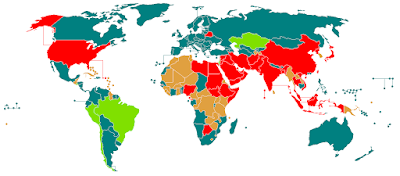
Although the Social Democrats increased their share of the vote and won more seats, the "Blue" opposition bloc led by Venstre's Rasmussen (Venstre, Danish People's Party, Liberal Alliance, Conservative People's Party, and Christian Democrats) gained a parliamentary majority over the "Red" Social Democrat-led bloc (Social Democrats, Red–Green Alliance, The Alternative, Social Liberals, and Socialist People's Party). The surge of ultra-right Danish People's Party to the second place is especially alarming. It could be a sign that the integration of immigrants into Danish social life is stalling, cross-cultural gap in mutual understanding is growing, and electors try to show their discontent with the existing troubles. Poor cross-cultural skills of both locals and immigrants, is to blame for the growing immigrant crisis in the West.
The election, called by Prime Minister Helle Thorning-Schmidt just three weeks ago, came at a time when Danes increasingly feared that their cherished system of generous welfare benefits was being abused by migrants from southern Europe and a recent surge of more than 14,000 asylum seekers, mostly Muslims.
The country remains shaken by a Feb. 14 shooting rampage in Copenhagen by the 22-year-old son of Palestinian immigrants at a free-speech event and outside a synagogue that left two people dead and five police officers wounded.
Both of the leading parties had pledged a tougher stance on immigration, with the prime minister campaigning on a vow to require refugees to work — an unusual position for her party.
FT writes that Nordic social democracy is in crisis. But I disagree, since social democracy is not just about immigrants. I would rather say that recent results of the elections prove the decline of multiculturalism, but not of the overall social democratic model.
The threshold to enter parliament in Denmark is low (only 2%) compared with most other countries. Germany, for example, has a 5% threshold, Sweden 4% and Turkey 10%.
Hence, Denmark’s voting system makes it near impossible for a single party to win an outright majority. No party has won one since 1903. This means that governments in Denmark tend to be coalitions, often even minority alliances with parliamentary support from other parties.







